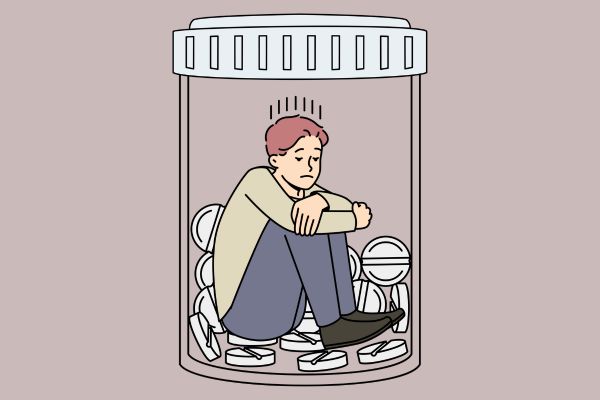Procedures for Issuance of Voluntary Drug Rehabilitation Operation Licenses at the Provincial Level: Regulations and Guidelines
What is the procedure for issuing a provincial-level voluntary drug rehabilitation license?
In accordance with the provisions in Subsection 1, Section A of the administrative procedures issued together with Decision 470/QD-LDTBXH in 2022, the procedure for issuing a license for provincial-level voluntary drug rehabilitation is as follows:
Step 1: Submission of the application
The voluntary drug rehabilitation facility must submit directly, by postal mail, or electronically one set of documents as prescribed in Clause 1, Article 11 of Decree 116/2021/ND-CP to the Department of Labor, War Invalids, and Social Affairs.
In the case of electronic submission, the rehabilitation facility is responsible for keeping all original documents and bearing legal responsibility for the accuracy and truthfulness of the documents.
Step 2: Receipt of the application
The Department of Labor, War Invalids, and Social Affairs is responsible for receiving the application during working hours. If the application is incomplete or invalid, a guidance slip for additional documentation must be issued immediately to the applicant.
Step 3: Review and Evaluation
The Director of the Department of Labor, War Invalids, and Social Affairs is responsible for organizing the review and evaluation of the application and the conditions for issuing the license according to the provisions in Article 9, Clause 1, Article 11 of Decree 116/2021/ND-CP.
Step 4: Decision to issue or not issue the license
Within 15 working days from the date of receiving a complete and valid application, the Director of the Department of Labor, War Invalids, and Social Affairs must make a decision to issue a license for drug rehabilitation activities. If the license is not granted, the applicant must be informed in writing with a clear explanation of the reasons for the denial.

Procedure for issuing a provincial-level voluntary drug rehabilitation license?
What are the documents required for issuing a provincial-level voluntary drug rehabilitation license?
In accordance with the provisions in Subsection 1, Section A of the administrative procedures issued together with Decision 470/QD-LDTBXH in 2022, the documents required for issuing a provincial-level voluntary drug rehabilitation license include:
- A written request for a drug rehabilitation license from the voluntary drug rehabilitation facility.- One copy of the decision to establish, permit establishment, or the business registration certificate.- A document from the Chairman of the District People's Committee approving the location of the voluntary drug rehabilitation facility.- Documents proving the adequacy of infrastructure and equipment.- One original list of staff, along with copies of diplomas and certificates; one brief resume of the head or legal representative; one copy of a certificate confirming training or professional development in drug treatment and rehabilitation, or confirming work experience at the drug rehabilitation facility of the head or legal representative.- One financial plan of the voluntary drug rehabilitation facility ensuring the operation of drug rehabilitation activities.
What are the requirements and conditions for completing the procedure for issuing a provincial-level voluntary drug rehabilitation license?
In accordance with the provisions in Subsection 1, Section A of the administrative procedures issued together with Decision 470/QD-LDTBXH in 2022, the requirements and conditions for completing the procedure for issuing a provincial-level voluntary drug rehabilitation license are as follows:
Voluntary drug rehabilitation facilities must:
- Be established, organized, and operated according to legal regulations.- Have infrastructure meeting drug rehabilitation activity requirements:+ The facility must be located at a site convenient for transportation and access to healthcare; have electricity and clean water supply for daily activities; possess boundary walls and facility name boards.
+ Infrastructure++ Natural land area per individual: 80 m² in urban areas, 100 m² in rural areas, 120 m² in mountainous areas;++ Average accommodation area per individual: 6 m²; for individuals requiring 24/7 care, average accommodation area per individual is 8 m².
- Ensure other professional standards:+ Structures and equipment must accommodate drug addicts who are disabled or between 12 to under 18 years old; meet environmental, fire prevention, and firefighting standards as prescribed by law;+ Ensure medical, hygiene, clothing, and nutrition standards for rehabilitating individuals; provide cultural, physical exercise, sports, and recreational access in line with Vietnamese traditions, beliefs, religions, suitable for ages and characteristics.
- Arrange separate areas or rooms for different groups like those from 12 to under 18 years, contagious diseases group A, group B as per the Law on Prevention and Control of Infectious Diseases, females; those with gender differences indicated in records shall be managed in separate areas according to their apparent gender.
If renting infrastructure, the lease term must be at least 2 years from the time of application submission.
- Have the minimum necessary equipment as listed in Appendix I attached to Decree 116/2021/ND-CP.- The staff working at the rehabilitation facility must meet the qualifications and standards stipulated in Clause 1, Article 8 of Decree 116/2021/ND-CP.
The head or legal representative of the rehabilitation facility must hold at least a university degree and have received training or professional development in drug treatment, or have at least 2 years of working experience in drug treatment and rehabilitation at a rehabilitation facility.
- Have a financial plan ensuring the maintenance of drug rehabilitation activities at the facility.
LawNet